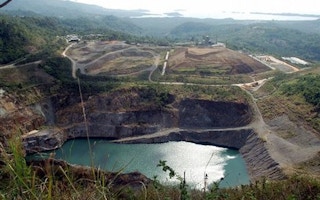Up-front planning, public- and private-sector involvement and consistent, enforced regulation are key to saving the world’s forests, concluded participants in talks leading up to a two-day B4E Global Summit in Jakarta.
The international conference will highlight ways in which businesses can contribute to conservation and sustainable business practices – and the Heart of Borneo, an initiative launched in part by the World Wildlife Fund (WWF), aims to be the catalyst for action.
Native rainforest covers nearly one-third of the island of Borneo, jointly controlled by Indonesia, Malaysia and Brunei. Mining companies, forestry concessions or palm oil plantations control roughly 40 per cent of that area. That makes it an ideal microcosm for examining sustainable development that can be used on a global scale.
On Wednesday, panelists outlined the challenges facing each sector and posed questions they hoped to address in the days ahead.
“A well-managed forest has all the properties we value in development – it generates income for communities and preserves the surrounding biodiversity,” said a speaker on the forestry panel. All comments were kept anonymous to ensure an honest debate among participants.
But dangers arise when concessions become inactive, creating open access areas for illegal loggers. These areas need to be converted to other uses said an official with WWF, which is pushing for restoration areas that would prohibit abandoned concessions from being redeveloped for up to 25 years to allow the forests to regenerate.
Mining also provides opportunities for former mining concessions to be redeveloped into moneymaking ventures. Former mining zones in England and the Netherlands have been developed into a concert hall and recreation area, respectively.
Participants said the key is long-term, forward thinking on the part of businesses and local governments. They added that regulation that has been put in place over the past year seeking to exert greater control over the activities of mining and forestry companies also needs to be enforced.
“Our concern is implementation of mine closure projects, since local officials change every five years,” said one mining panelist, highlighting the fact that regional policies often change with each new governor.
As a final point of discussion, participants said companies need to work together to share ideas for improved sustainability – an action made easier by the launch on Wednesday of the Indonesian Businesses Council for Sustainable Development, which aims to include up to 30 local companies by the end of 2011.
Now is the time to move ahead with better solutions because the help is available for those who are committed, said WWF. But commitment requires incentives and monitoring, and while many of the players here on Wednesday said they’re ready to take action, others said they would be watching.
Eco-Business.com’s coverage of the B4E Global Summit 2011 is brought to you by City Developments Ltd (CDL).
Click here to read all stories from the B4E Global Summit 2011.








